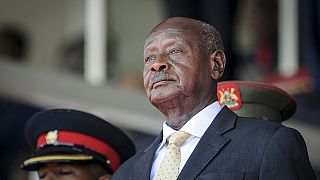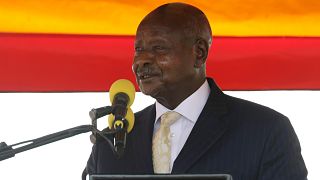Uganda
A recent study by the United Nations World Food Programme (WFP) shows that the humanitarian aid distributed to refugees in Uganda has a multiplier effect which benefits, the whole local economy.
The results of the study published on Friday by the World Food Program focused on 1,500 homes and 385 shops in two major refugee camps in northern Uganda.
“Now we can say with certainty that when Ugandans provide land to refugees and when the WFP give money, revenues are multiplied and the economic benefits are divided between the refugees and the host communities.’‘ said WFP Deputy Country Director Cheryl Harrison.
She said it is also the first time they have calculated the economic impact of Ugandan’s generous approach to providing agricultural land to refugees.
“The results show clearly that refugees benefit those countries that welcome them and give them what they need to build new lives.” she said.
According to the study’s lead researcher, Professor Edward Taylor of the University of California, Davis, the annual income in the Ugandan economy increases by US$1,100 – and by US$850 when the assistance is given in the form of in-kind food.
“The multipliers are significant, regardless of whether a refugee family receives cash or food. When a refugee household receives cash from WFP, the annual income in the Ugandan economy increases by US$1,100 – and by $850 when the assistance is given in the form of in-kind food,” he explained.
WFP has been distributing cash among refugees, in collaboration with the Uganda Government and the United Nations High Commissioner for Refugees (UNHCR), since 2014.
Cash-based transfers not only empower people by giving them the ability to decide for themselves what they eat, but boost their purchasing power.
This boost, as verified by the study, increases the strength of the refugees contribution to the local economy.
Each refugee household that has been given land by the Government contributes up to US$220 to the Ugandan economy annually, depending on the settlement.
The research teams conducted extensive interviews with a sample of households, comprised of mostly Congolese refugees in Rwamwanja and South Sudanese in Adjumani.
Assistance To #Refugees Boosts Uganda’s Economy, a study by
— ReliefWeb (reliefweb) October 28, 2016WFPand Univ of Cal. has found https://t.co/Soet2HAQtH #Uganda #integration
The team also interviewed local businesses inside the two settlements and within a 15-km radius.
Data from these findings enabled the researchers to construct a local-economy impact evaluation model from which the results were derived. The full technical report from the study is due to be published later this year.












01:33
The ripple effect of Trump's budget cuts on refugee camps in Kenya
00:11
US, European allies agree August deadline for Iran nuclear deal
Go to video
UN Special Rapporteur calls for concrete action on 'genocidal' Gaza occupation
01:07
Only 35% of sustainable development goals on track to meet target, UN says
01:07
UN-Russia agricultural export memorandum will not be extended
01:13
Forty years and counting: CAR once again postpones local elections